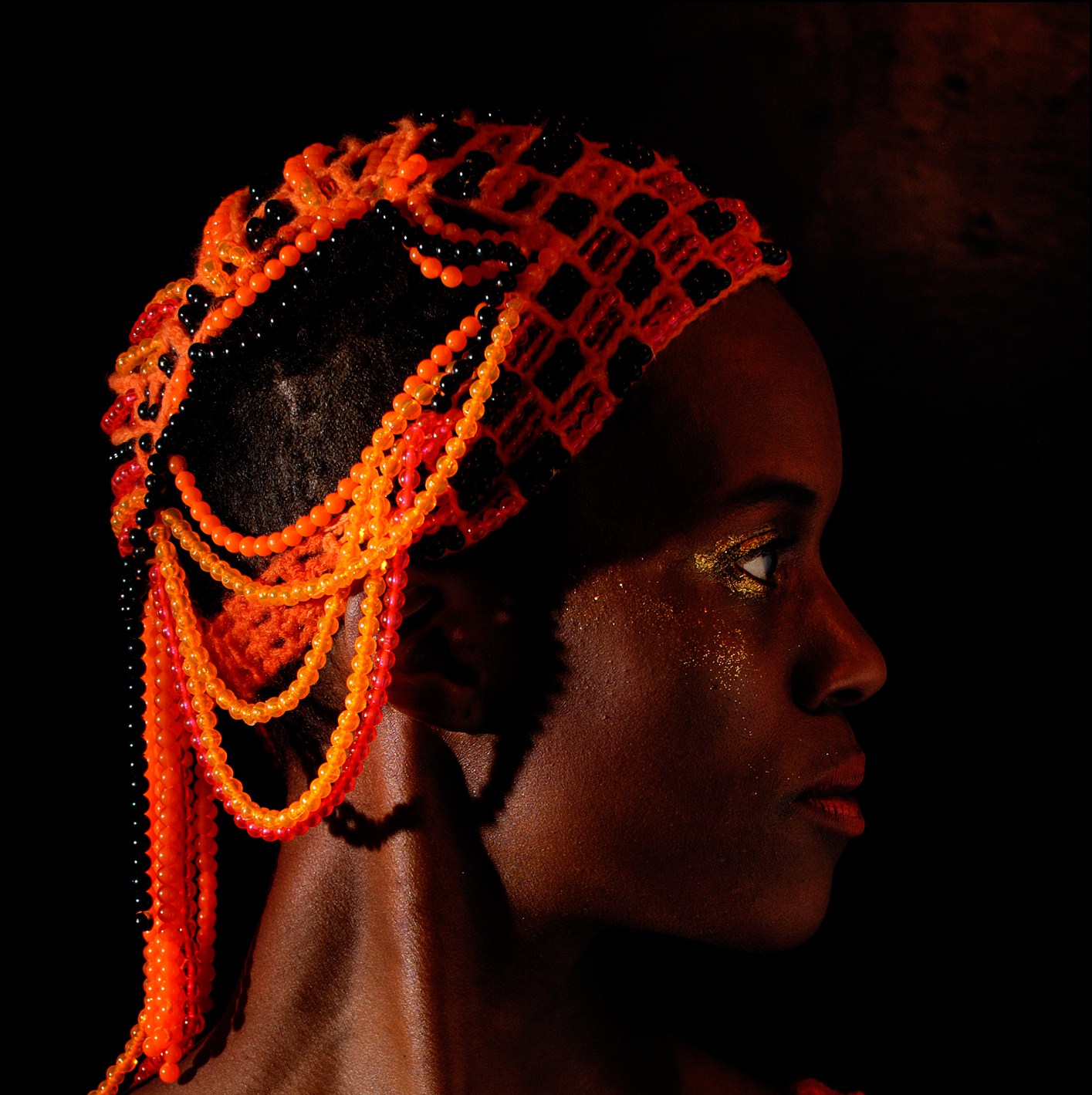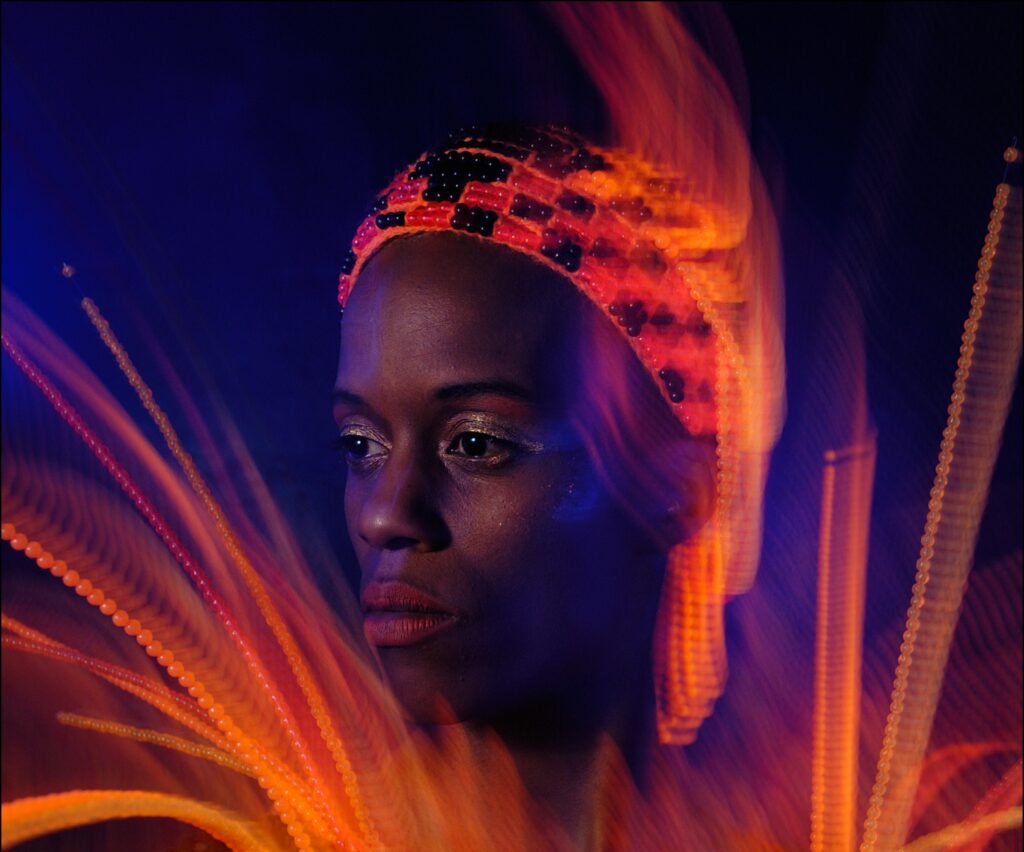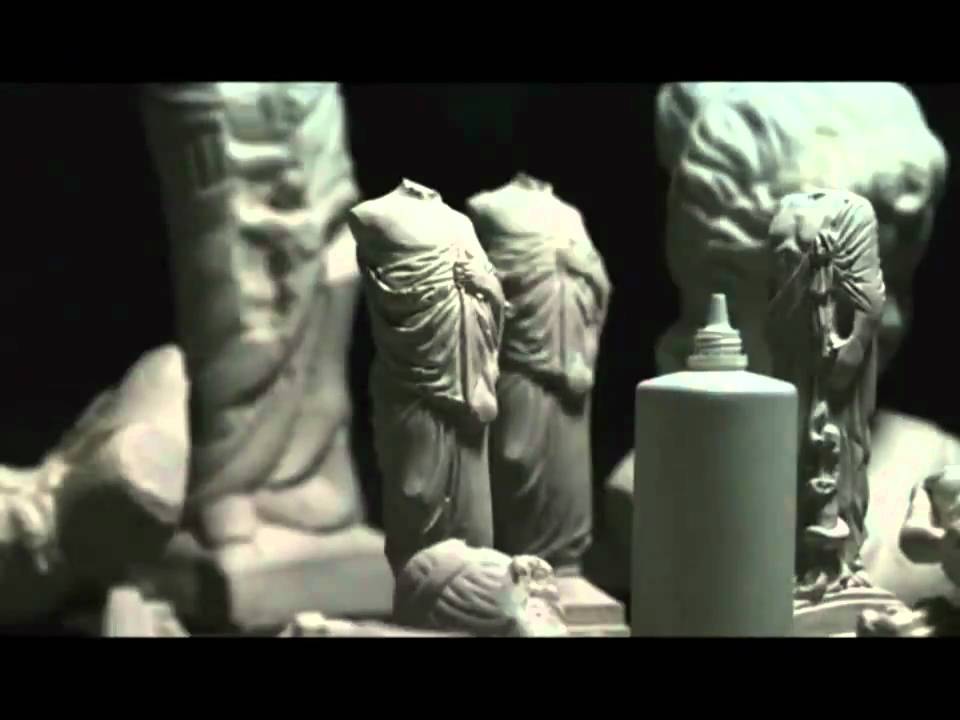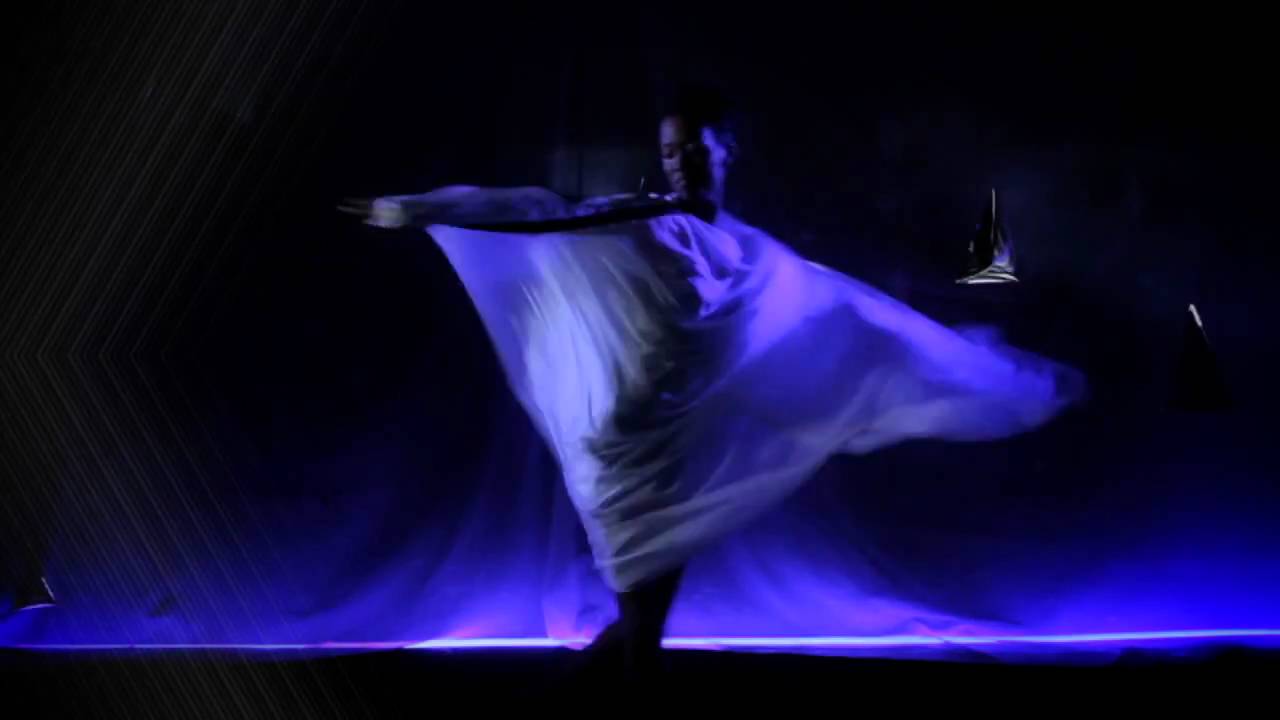"You won’t be bored; what do you want to know?" is Barbara Panther’s opening comment. You don’t really interview her; you tune into her world, strap yourself in and ride a rollercoaster of philosophy, opinion and anecdote. During our 45-minute ‘conversation’ via a Skype video link, we cover the genocide, religion, the beauty of root ginger, nomads, the Berlin music scene and her "stunning" Venetian dance instructor. Barbara tells me she "hates" God and thinks all Barack Obama has is "a beautiful face." The Rwandan-born, Brussels-raised singer-songwriter is a fizzing ball of untethered energy – a free radical.
Against this backdrop of subjects, it almost seems trite to discuss music. Barbara has just released her self-titled debut album, produced by Matthew Herbert. It is a dizzying smorgasbord of pop, jazz-funk, Latin and African beats and Panther’s call-to-arms posturing. At times, her vocal reveals delicious accented inflections – to simply hear Barbara say the word ‘Rwanda’ provides unsuspected joy.
Constrained by the starkness of the written word, Barbara’s world view can seem like the naive regurgitation of ancient hippy ideals. But, there is a passion and warmth in her voice which is utterly compelling. Put simply, Barbara believes she has "worked it out" – that humans need to free themselves from the corrupted dogma of religion to be able to unlock their innocence and take joy from the Earth and the Universe. She came to this conclusion during a moment of epiphany while watching an operatic concert in Rome to mark the new Millennium – although she loses me during that particular long and complex monologue. Much of
You were born in Rwanda, but left for Belgium when you were three years old. Have you ever returned?
Barbara Panther: I have been back to Rwanda, in 1996, two years after the genocide. I was very young but I wanted to know where I was from. Obviously, what I saw was not so pretty for the eyes; not Africa the way you want to see it. It was death and silence, and fear was still hanging in the air.
That must have been a hugely emotional experience. How did it effect you?
BP: I am going to be very honest with you, I think that any person, even if you are not from that country, if you go to Africa you are exposed to something that is very real; more real than living in England or Berlin. I believe Africa is where we are really all coming from, so each individual going there will be exposed to something deep inside of them.
Is your music shaped, in any way, by what you saw in Rwanda?
BP: Of course, it is something that you never forget, but I don’t want to say that I am traumatised or want you to think that when you listen to my lyrics that this is what I am talking about. I am talking about the combination of experiences in my life. I don’t want people to combine the fact that I am from Rwanda with my lyrics. That would be a mistake. I don’t want to sing you a song about loneliness or pain or being adopted and how it feels to be black in a white family or stuff like that. It is not relevant – it is my business. I care more about you than I care about me. That is why I prefer to take something on which is universal in my lyrics and everybody can understand and relate to.
A number of themes on the album seem to evoke a revolution for the poor and oppressed. I’m thinking about the lines "Each night I pray like a bitch / That one day the poor will eat the rich" on ‘Voodoo’.
BP: I would like to call it evolution, not revolution. Revolution sounds too much that we are still on the ground and we have to stand up. We are already on our feet and we have to move on. There are my own beliefs in how I think things should be like. With the lyric "the poor will eat the rich," what I mean by that is I believe that, one day, the poor will understand what really actually happens. And then things might turn around.
Is it beginning to happen?
BP: Yes, in the [Rwandan] genocide, there were a lot of Muslim people who opened their doors to help the fleeing Tutsis and now a lot of African people are turning to Islam. If you can see now in the world, Muslims feel oppressed and are reacting using whatever they can to be heard. So, when I say "the poor will eat the rich" it is an eye for an eye and a tooth for a tooth.
That is a very biblical philosophy. Are you religious? Do you believe in God?
BP: No, I hate him. But I have to talk to the guy. So, I believe that he is here and I believe he has been created by humans. But, I am sorry, I believe in science. I don’t believe in creationism – I believe in evolutionism and that is exactly what God doesn’t believe in. He thinks he created all these beautiful things; trees, flowers and ginger coming out of the earth. I believe that all religions – Hinduism, Buddhism, Allah, God – meant well at the start. They all wanted to build bridges to help understand existence, but then they all turned against themselves and tried to claim the Universe.
I think it is time for the human race – and I hope this is going to happen – to get that out of their minds. Look what God and Allah are doing right now: they are at war. They are fighting for power and they want your money, and they want your spirit and your innocence. Enough is enough.

That is a hugely liberating thought. You appear to be an extremely free-spirited person. Is that a fair observation?
BP: I am free – and that gets me in trouble every day. I don’t want to sound pretentious to you – I am a humble person. But I went to the bottom and I have seen it. I saw genocide, I saw skeletons – I saw how low human beings can go. Then, I figured out what religion is and it holds human being from being free, and I took the time and effort to figure it out. I started to exorcise the guy [God] out of my brain, and began searching for innocence again. And what I really know is much more than he can tell me. I took the risk to be free, which is not something a lot of people dare to do.
You were raised in Brussels, but have been to dance school in Vienna and now live in Berlin. Does your free spirit require a regular change in environment?
BP: I move a lot because I am a nomad. My father is Ethiopian and is a Tutsi. It is in my blood to move – I love moving. I believe that if you don’t grow mentally in a place anymore, it is time to leave. I also move in my head a lot. I travel a lot. You should come on holidays in my head. It is free and there is a lot of entertainment. You are welcome – just be gentle.
Does this freedom make you happy?
BP: I am very happy that I know what is going on and I am very happy that knowing all this stuff frees me to find my innocence. If I go to a market and I see all the fruit and all the colours, like oranges, apples and strawberries, it makes me cry with happiness. This makes me very happy – knowing the Earth and knowing the Universe. What makes me incredibly sad is that I cannot share this happiness with a lot of people. There are still a lot of people who are kind of ‘locked up’. I believe we were all born with a universal consciousness and what hurts me very much is that people need to suffer because nobody told them or they were led away by something else – they were enchanted by God or a lifestyle.
But I suppose you do have a chance to share – by making music and playing it for people. In fact, shall we do something a little maverick and maybe talk about your album?
BP: We must toast each other first. I see you have some white wine – I have a glass Secht [fizzy white wine]. Prost!
Prost. So, did you have an idea for how you wanted the album to sound?
BP: To be honest, I never had any idea of what it was gonna sound like. It is all very instinctive. It is someone buying an eight-track and a computer, and then a keyboard, and finding their own vibration and the harmonies they liked. As you can hear, every song is different; every song has its own character and personality. It took me a few years to find my own sound and poetry, to find my own voice and be able to say what I feel.
The album was produced by Matthew Herbert, who has worked with some amazing artists such as Björk and Yoko Ono. What impact did he have on you?
BP: I love Matthew Herbert very much. He is also a free spirit. I came with my album, which was all ready. That is important – I don’t want people to think that he wrote my album and I am just a singer. That is not what it is. We met in London and he asked me ‘what type of artist do you want to be? I love your music and I actually just want to mix it’. But, when we were in the studio, because everything was done, there was time for experiments. When you have two energies together in a space, there is always a place for change. So, something like ‘Last Dance’ became a great song. I had this jazzy beat which didn’t make any sense. He came up with a four-on-the-floor, changed the whole dynamic of the song and gave the song energy that it has in the lyrics.
Finally, what is next for Barbara Panther?
BP: In the near future, I am going to go to the mountains and disappear for a while. I am going to go inside myself and write the next album. It will be a development of what you hear now. I think I am on to something and I believe that passionately. I think I can do more than just sing. I don’t know what it is exactly, but I will find it. I want the human race to be itself again – to be free from everything that held it back.




